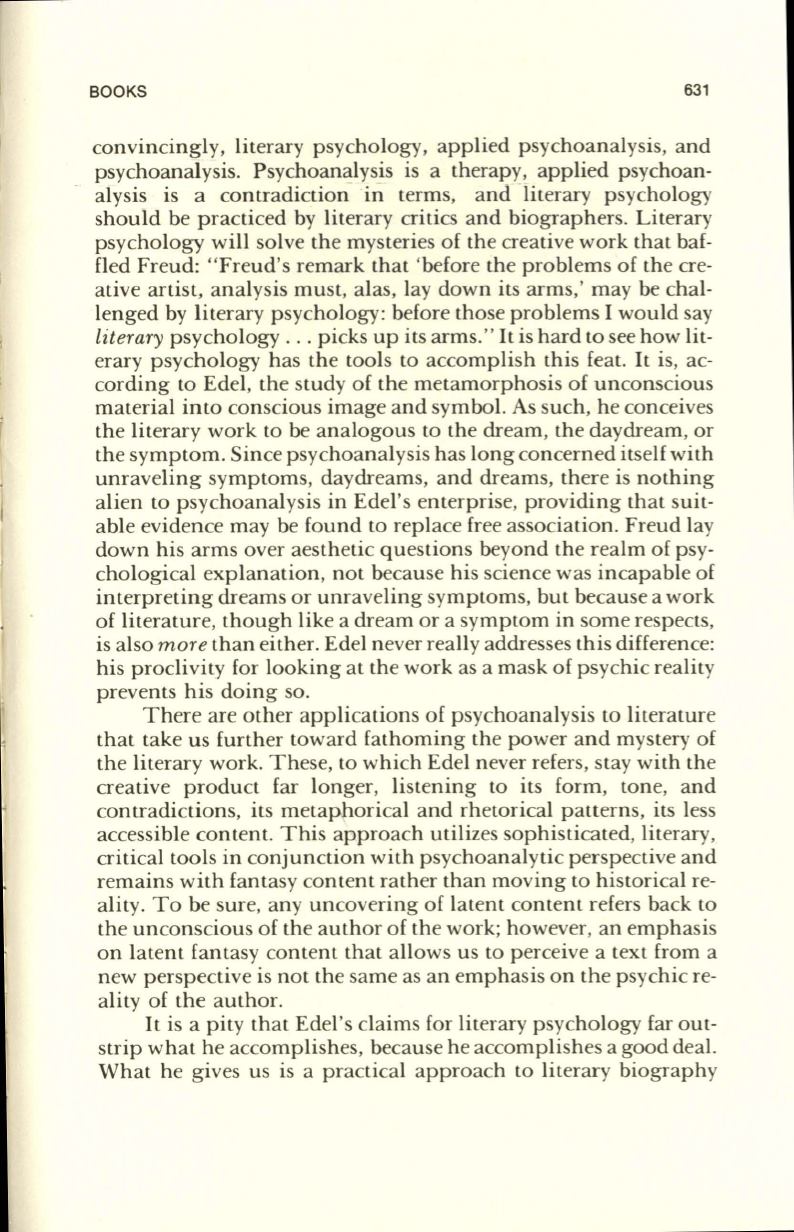
BOOKS
631
convincingly, literary psychology, applied psychoanalysis, and
psychoanalysis. Psychoanalysis is a therapy, applied psychoan–
alysis is a contradiction- "in terms, and "literary psychology
should be practiced by literary critics and biographers. Literary
psychology will solve the mysteries of the creative work that baf–
fled Freud: "Freud's remark that 'before the problems of the cre–
ative artist, analysis must, alas, lay down its arms,' may be chal–
lenged by literary psychology: before those problems I would say
literary
psychology ... picks up its arms."
It
is hard to see how lit–
erary psychology has the tools to accomplish this feat.
It
is, ac–
cording to Edel, the study of the metamorphosis of unconscious
material into conscious image and symbol. As such, he conceives
the literary work to be analogous to the dream, the daydream, or
the symptom. Since psychoanalysis has long concerned itself with
unraveling symptoms, daydreams, and dreams, there is nothing
alien to psychoanalysis in Edel's enterprise, providing that suit–
able evidence may be found to replace free association. Freud lay
down his arms over aesthetic questions beyond the realm of psy–
chological explanation, not because his science was incapable of
interpreting dreams or unraveling symptoms, but because a work
of literature, though like a dream or a symptom in some respects,
is also
more
than either. Edel never really addresses this difference:
his proclivity for looking at the work as a mask of psychic reality
prevents his doing so.
There are other applications of psychoanalysis to literature
that take us further toward fathoming the power and mystery of
the literary work. These, to which Edel never refers, stay with the
creative product far longer, listening to its form, tone, and
contradictions, its metaphorical and rhetorical patterns, its less
accessible content. This approach utilizes sophisticated, literary,
critical tools in conjunction with psychoanalytic perspective and
remains with fantasy content rather than moving to historical re–
ality. To be sure, any uncovering of latent content refers back to
the unconscious of the author of the work; however, an emphasis
on latent fantasy content that allows us to perceive a text from a
new perspective is not the same as an emphasis on the psychic re–
ality of the author.
It
is a pity that Edel's claims for literary psychology far out–
strip what he accomplishes, because he accomplishes a good deal.
What he gives us is a practical approach to literary biography


